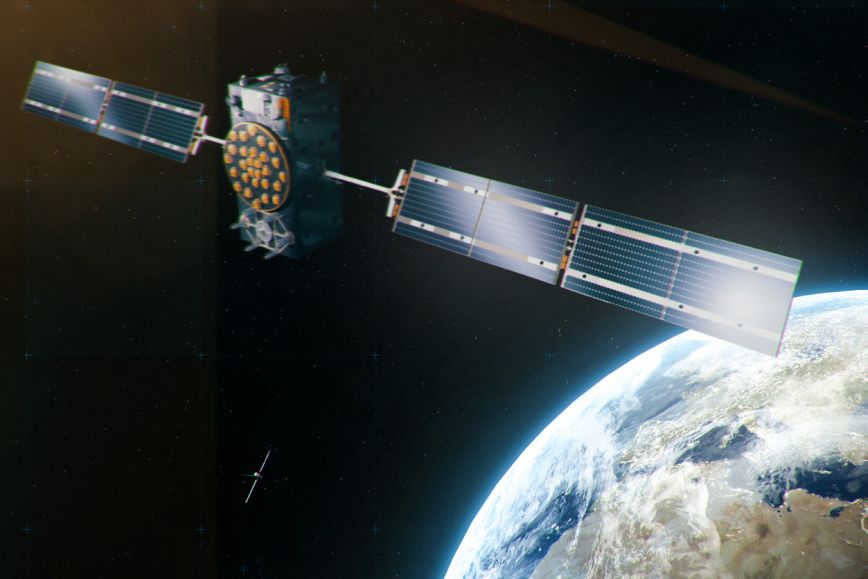The EU’s SST coalition (Space Surveillance and Tracking) now includes 15 countries in total: Spain, Austria, Czech Republic, Germany, Denmark, Finland, France, Greece, Italy, Latvia, the Netherlands, Poland, Portugal, Romania, and Sweden.
Each partner country is represented by a national central organisation, which for Finland is the Finnish Meteorological Institute. Other key operators in Finland are the National Land Survey of Finland as well as several ministries, such as the Ministry of Transport and Communications, the Ministry of Economic Affairs and Employment, and the Ministry of Agriculture and Forestry.
‘Cooperation with the EU in the field of space surveillance is natural continuance to the high-quality space operations in Finland,’ says Jussi Kaurola, the Director General of the Finnish Meteorological Institute.
‘Securing the European Galileo navigation satellite system is vital for producing geospatial data and all land surveying operations,’ says Petri Korpinen, the Deputy Director General of the National Land Survey of Finland.
Securing the operations of satellites requires measurements and surveillance
Satellites orbiting the Earth produce information on matters such as positioning, weather phenomena and safety. However, the continuous risk of collision with space debris in the orbit causes major risks to their functionality: there are at least 100 million pieces of space debris exceeding the size of 1 mm in the orbit. Even just one of these tiny 1-mm particles of debris may render a satellite inoperable on impact.
European cooperation makes it possible to monitor the satellites’ operational environment, and this has also yielded results: The EU’s SST coalition worked together to prevent the collision of a satellite and a large piece of space debris. On 1 June 2021, the orbit of satellite GSAT0219 of the European Galileo navigation satellite system was adjusted to prevent a collision.
High-level competence, hardware and location as the trump cards of Finland
Being accepted in the EU coalition requires the new member to have adequate operations and devices related to space situational awareness that can be utilised for the partnership work. The renewed Metsähovi Geodetic Research Station represents the latest technology in the field. It allows Finland to provide its partners with observations made using the National Land Survey of Finland’s Satellite Laser Ranging telescope and the services built around it. These are based on the practices and quality assurance of the 24/7 space weather service of the Finnish Meteorological Institute. Finland can boast high-quality research related to space situational awareness. The NLS, the Finnish Meteorological Institute and many universities have key roles in this field. Another factor in Finland’s favour is its great location for space surveillance: Polar satellites flying over the Earth's poles can be seen more frequently in Finland than in lower latitudes. The funding base of the new EU SST agreement allows the early-stage implementation of the national space situational awareness centre, the founding of which is currently under way.
The Finnish Meteorological Institute, the National Land Survey of Finland and the Finnish Air Force have been planning a space situational awareness centre since the early 2019. This EU SST partnership also helps Finnish operators involved in space surveillance access the EU funding targeted at the European space surveillance and tracking field.
More information
Jussi Kaurola
Director-general
The Finnish Meteorological Institute
tel. +358 29 539 2201
Jussi.Kaurola@fmi.fi
Jouni Pulliainen
Director, Space and Earth Observation Centre
The Finnish Meteorological Institute
tel. +358 50 589 5821
Jouni.Pulliainen@fmi.fi
Ari-Matti Harri
Research Unit Director, Space research and new observation methods
The Finnish Meteorological Institute
tel. +358 50 3375 623
Ari-Matti.Harri@fmi.fi
Hannu Koivula
Head of Department, Geodesy and Geodynamics
National Land Survey of Finland
Finnish Geospatial Research Institute
tel. +358 29 531 4787
Hannu.Koivula@maanmittauslaitos.fi

